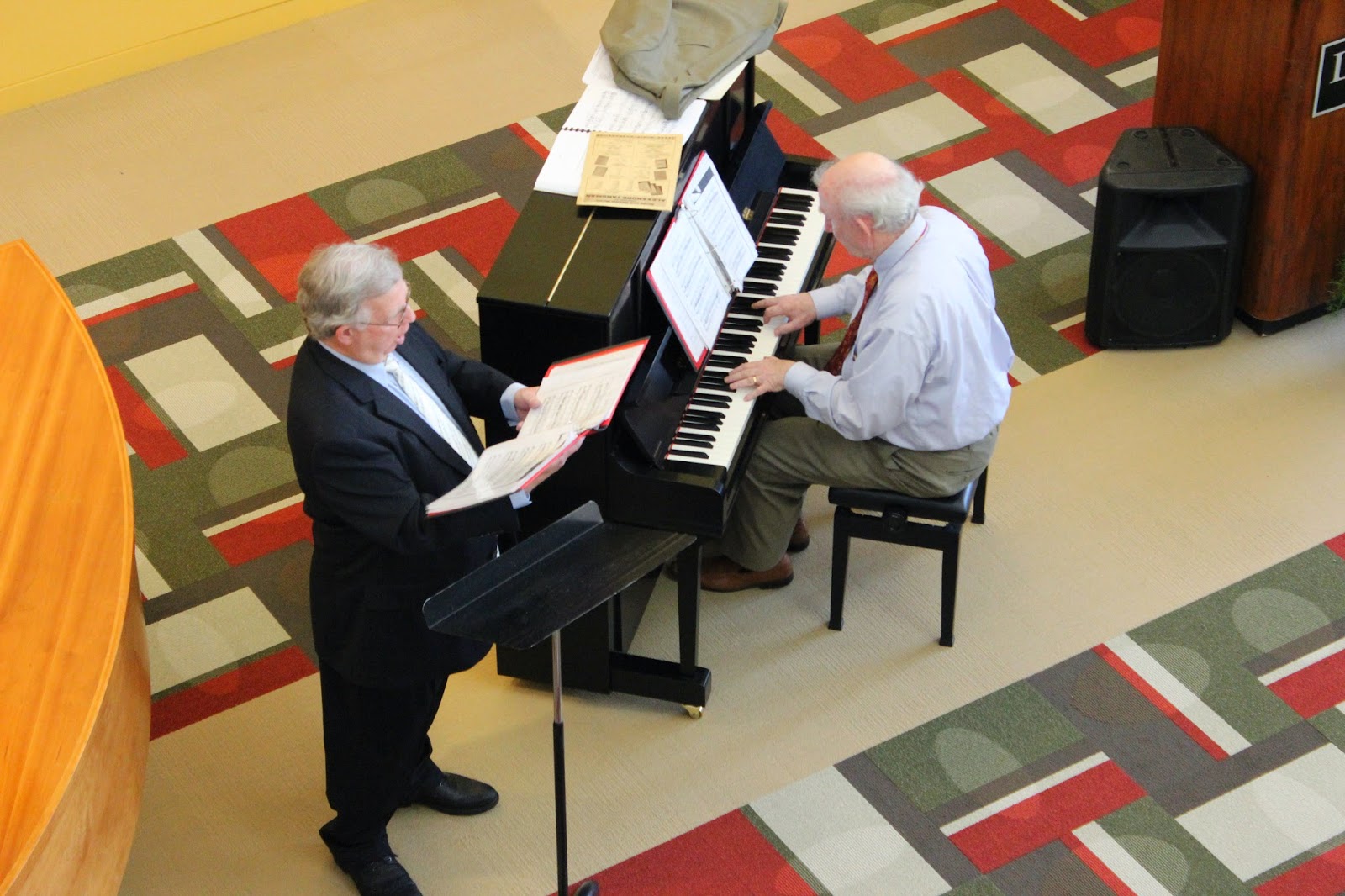Seriously, look at all these things!
You might be asking yourself, "Self, what are these Cornerstone Library Orientation Worksheets?"
There are approximately 240 Cornerstone students this semester, all of which will be required to find scholarly sources from the library to incorporate into their presentations and papers. In order for our new students to orient themselves with what our library has to offer and how to identify a scholarly source, they will complete the Library Worksheet that is designed to help them familiarize themselves with our online and print resources.
Our new students will need a little bit more than a short worksheet in order to learn how to find and identify a scholarly source as well as familiarize themselves with our online and print resources. Though it is no replacement for a face-to-face instruction session with a librarian, here are some Frequently Asked Questions that may help Cornerstone students (and any LaGrange College students) find sources for their papers:
For all of your Cornerstone students out there, this blog is for YOU! Keep reading.
Q: Where do I begin when I am ready to do my research? Do I just Google my topic?
A: Google is a wonderful thing. Never in the history of humanity have we been able have so much information at our fingertips so quickly. However, when you are searching for your scholarly sources (as required by all Cornerstone professors) Google could lead you in the wrong direction. Google Scholar allows you to search for articles on specific topics that often have academic credibility, but often you have to work harder to find and evaluate them. Also, many times, you may find an article that you believe works well for your project, but you are required to subscribe or pay for access.
The good news is that the Lewis Library has access to the GALILEO Discovery Service, which searches everything that the Lewis Library owns, including books, e-books, magazines, and articles, print or online. As a LaGrange College student, you have access to thousands upon thousands of Academic Journals through GALILEO, and the search is much easier. When you are searching GALILEO, there is a handy little checkbox marked "Scholarly (Peer Reviewed) Journals" that allows you to narrow down your search to just those types of articles. Look for it in the left-hand column after you perform your search.
Q: Ok, I found an article through the GALILEO Discovery service that I want to use in my paper. How do I know if it is a scholarly source or not?
A: We have an entire LibGuide page dedicated to this very question. On that page you will find a video explaining how to identify a scholarly source and a scholarly sources checklist. While you are evaluating your sources, keep this checklist on hand to help you out. If you are still stumped, please ask your professor or a librarian, and we will be able to help you.
Q: Why can't I use Wikipedia for my paper? It has information on there that I can't find anywhere else.
A: Wikipedia is another one of those resources that gives us instant information at the click of a mouse, but there are multiple problems with using Wikipedia as a source in your paper. First, Wikipedia is a wiki (thus the name, Wikipedia). A wiki is a webpage that can be edited by multiple people at any given time, some of which may not be identifiable or trustworthy. For instance, hundreds of people may have logged in from all parts of the globe to add information to the Wikipedia page for Elvis Presley, but the identities and credibilities of these people may not be known. Therefore, there is no way to prove that the information given is accurate or complete or that the writers are experts on the subject.
Q: What about books and e-books? How do I find those to use in my projects and papers?
A: Our Library Online Catalog is the first place to go to look for books and e-books. Our e-books are all accessible from a computer, 24hrs a day. You don't even have to leave the comfort of your dorm room! Find the link to the Library Catalog on our Library Homepage.
Q: What about websites? Can I use those in my papers and presentations?
A: If your professor allows you to use websites, then by all means, go for it. However, you need to consider the credibility of the webpage before you go citing it in your papers. Once you find a website you want to use, then put it to the CRAAP test. Yes, the CRAAP test. Check out this link to the Cornerstone LibGuide and see the document titled "The CRAAP Test" in the right column. Answer the questions regarding your web page to help you evaluate its credibility.
You may still have more questions about how to find good sources for you projects, papers and presentations. That's where we come in.
Stop by Lewis Library and speak with a librarian, or you can use the Ask-A-Librarian feature!
Q: What about websites? Can I use those in my papers and presentations?
A: If your professor allows you to use websites, then by all means, go for it. However, you need to consider the credibility of the webpage before you go citing it in your papers. Once you find a website you want to use, then put it to the CRAAP test. Yes, the CRAAP test. Check out this link to the Cornerstone LibGuide and see the document titled "The CRAAP Test" in the right column. Answer the questions regarding your web page to help you evaluate its credibility.
You may still have more questions about how to find good sources for you projects, papers and presentations. That's where we come in.
Stop by Lewis Library and speak with a librarian, or you can use the Ask-A-Librarian feature!
















.JPG)














.JPG)


.JPG)
.JPG)
.JPG)